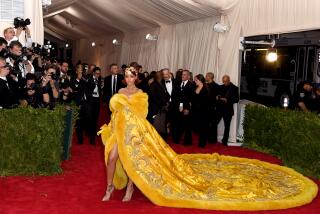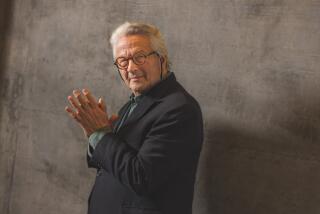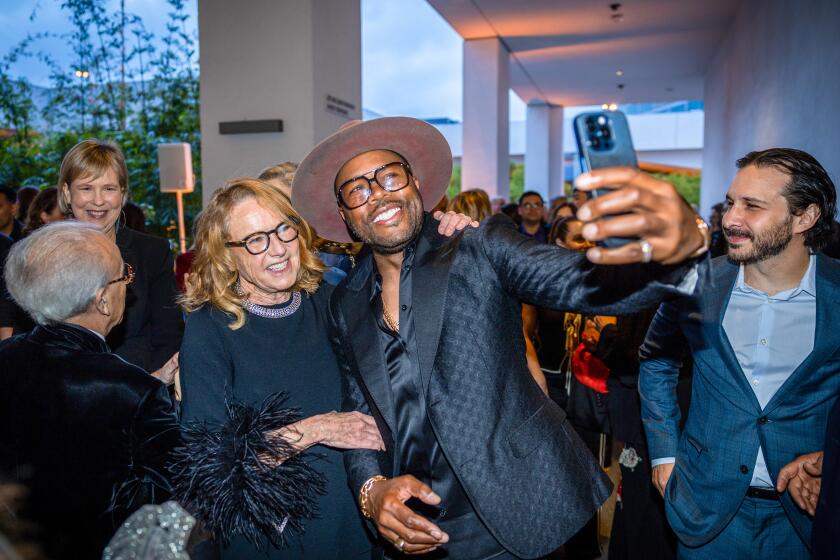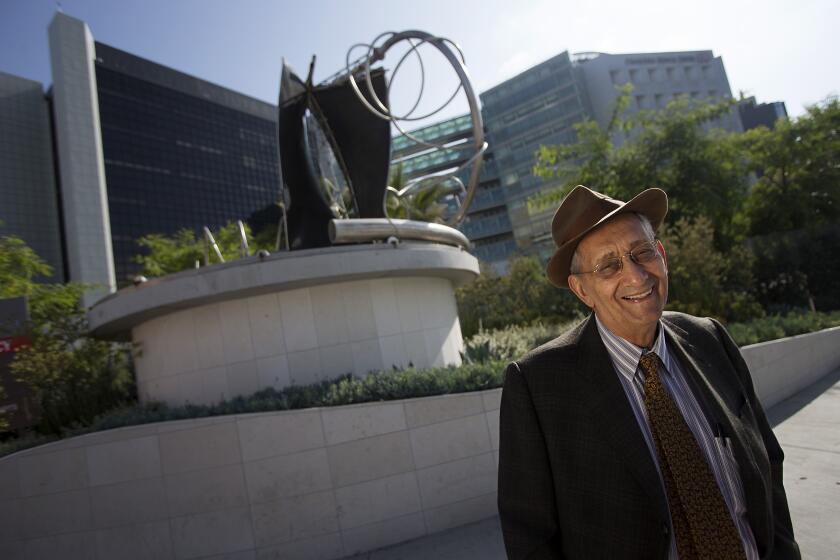‘Aida’ an Opulent Eyeful
Fourteen years after its first opening night, Los Angeles Opera realized a fond dream and long-awaited ambition Wednesday night: Verdi’s “Aida” arrived at the Dorothy Chandler Pavilion. The good news is that it looks spectacular--rich, colorful, beautifully lit, lavishly costumed--and sounds very fine. A fitting beginning to Placido Domingo’s leadership of the company.
The best and most encouraging sign for the future is that Domingo conducts this full-scale Verdi production with a signal authority he has not always shown in the past. The score comes at the audience with urgency, sweep and brio--and in parts unusual speed--and with thorough stylishness. That style is carried out neatly by the principal singers, the orchestra and chorus.
Visually, this is a stunner. Because of its co-production status, and the time it has taken for L.A. Opera to bring it to the Pavilion, it may be impossible to estimate the exact cost of this “Aida,” a portion of which was contributed by the company’s new friend, Alberto Vilar.
But it looks like a million bucks, give or take a few hundred thousand. There are no live animals, but there are lots of supernumeraries, some in revealing states of elegant undress, deployed effectively along with principals and chorus by director Stephen Pickover.
The staging is otherwise functional and unexceptionable, though one has to admire the clever way Pickover left open spaces in the Triumphal scene, creating an attractive stage picture. Pier-Luigi Pizzi’s stylized, almost abstract set designs are stripped down--none of the distracting excesses committed by Benoit Dugardyn in another recent local Verdi production, “Il Trovatore”--and, as handsomely displayed by the lighting designs of Alan Burrett, exceptionally striking.
Pizzi’s costumes are rich and not time bound; they flatter both the stockier and the slimmer principals and the good-looking chorus, dancers and supernumeraries. Watching the stage, a practical observer was struck by the possible cost of dry-cleaning those hundreds of costumes.
The singing? Good, competent--and in a couple of cases first class. “Aida” in our time is not easy to cast, but it can be done. These principals represent strong choices in an era of few choices.
Deborah Voigt, the American soprano--she began her career in Southern California--who has been admired for her Wagnerian and Straussian heroines, is not an ideal Aida. But she gets around the notes without effort and she is a musical and reliable singer.
The Italianate limpidity, the many vocal colors in the role, the ability to sing softly and to project vulnerability--these are not part of her arsenal. Yet she has the requisite stamina and range, and she projects a modicum of grace on the stage.
In his L.A. Opera debut, Johan Botha proved a splendid, stentorian and affecting Radames, not through his acting, which is primitive, but through his strong, beautiful and resourceful vocal performance. The young South African is as heavyset as Voigt--they are both here covered in yards and yards of beautiful fabric--but the singing is thoroughly admirable, and promising.
Veteran bass-baritone Simon Estes, in his company debut, created an angry, dramatically compelling Amonasro. Nina Terentieva, another Verdi veteran, sounded hooty and routine but kept the drama moving, especially in the longueurs of the Judgment Scene.
Holding the stage through strong voice and histrionic presence, Finnish basso Jaakko Ryhanen invested the role of Ramfis with qualities of authority and elegance it does not always receive.
The rest of the cast sang well, and included Bruce Sledge (Messenger), Louis Lebherz (King) and Cynthia Jansen (High Priestess). Under Domingo, the splendid orchestra distinguished itself throughout the performance.
* Los Angeles Opera presents Verdi’s “Aida” in Italian, with English supertitles, in the Dorothy Chandler Pavilion, 135 N. Grand Ave., Saturday and Monday, Thursday and Sept. 17, 20, 26 and 28 at 7:30 p.m., and Sept. 23 at 1 p.m. $28 to $148. (213) 365-3500.
More to Read
The biggest entertainment stories
Get our big stories about Hollywood, film, television, music, arts, culture and more right in your inbox as soon as they publish.
You may occasionally receive promotional content from the Los Angeles Times.






